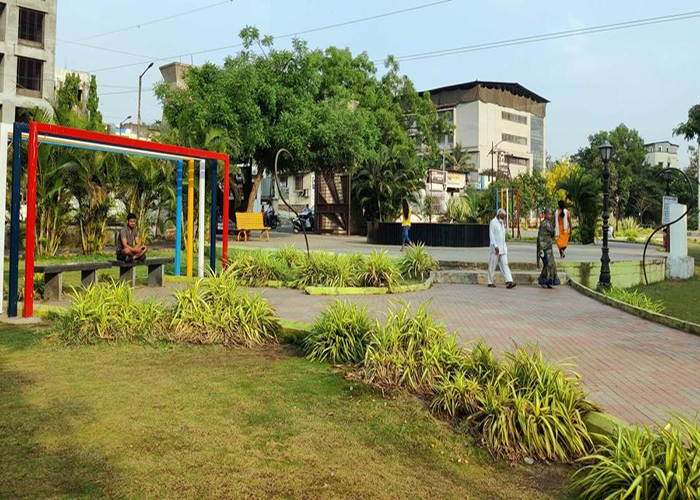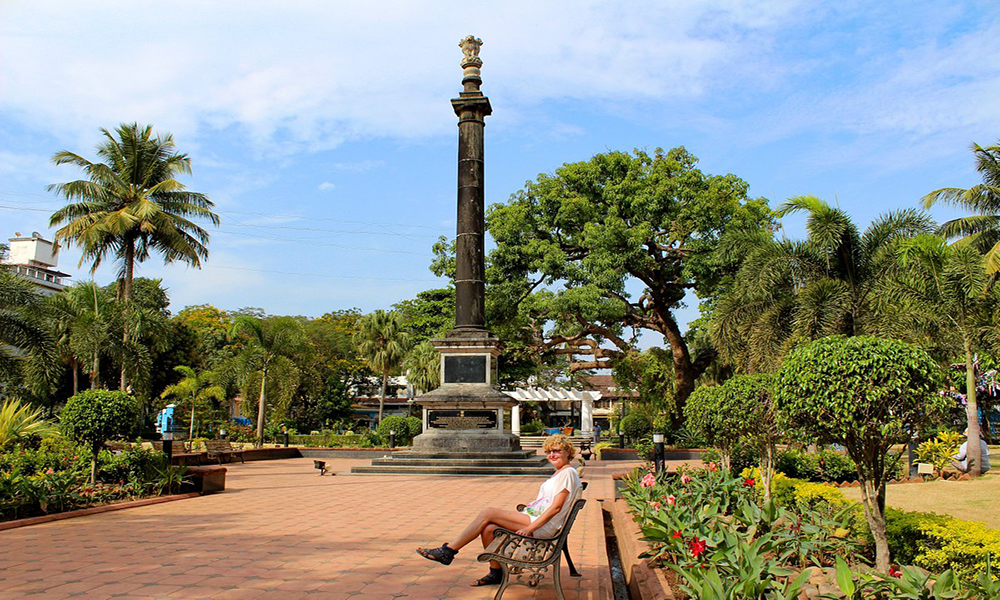Advanced Water Management and Wastewater Treatment for Municipal Gardens Using STP, ETP, WTP, WWTP, and Industrial RO Systems

Municipal gardens are vital in urban beautification, recreation, and environmental health. Across India, particularly in Maharashtra, cities are investing in green public spaces to improve air quality, encourage community wellness, and enhance biodiversity. These gardens are aesthetic landscapes and serve as the lungs of urban areas, helping mitigate pollution.
In Maharashtra, major cities like Mumbai, Pune, and Nagpur have numerous municipal gardens maintained by local authorities. These spaces often include lawns, botanical displays, fountains, and recreational zones. Managing such gardens requires systematic planning, especially regarding water usage and maintenance. The growing urban population increases the pressure on water resources, making efficient water and wastewater management essential for long-term sustainability. As these gardens expand in size and complexity, integrating effective water treatment systems becomes more critical.
Water Usage in Municipal Gardens and Its Essential Role in Landscape Health and Public Enjoyment
Water is the lifeblood of any municipal garden. It is used constantly, from irrigating plants and lawns to maintaining decorative fountains and public restrooms. Trees, shrubs, and seasonal flowers require daily watering, particularly during dry months. Automated sprinkler systems and drip irrigation are commonly employed to ensure even distribution.
Besides horticulture, water is also needed to maintain walkways, clean benches, and operate public facilities. Many municipal gardens include playgrounds, open gyms, and cafes, each contributing to the overall water demand. Without an adequate and sustainable water supply, plant health deteriorates, and public utility features become unhygienic or unusable. This calls for a reliable water source backed by treatment systems that ensure quality and conservation. Treated water can be safely reused for non-potable purposes, easing the burden on freshwater resources.
Activities in Municipal Gardens That Regularly Contribute to Wastewater Generation and Environmental Concerns
Municipal gardens generate wastewater through multiple day-to-day operations. Irrigation runoff can carry pesticides and fertilizers into drains, especially in over-watered or sloped areas. Public restrooms, drinking water stations, and wash basins produce greywater regularly, especially in high-traffic gardens.
"Municipal gardens are the soul of our cities, and water is the force that keeps them alive. Effective water management ensures lush greenery, public hygiene, and sustainable urban living. Responsible use, recycling, and treatment of water resources are not just practices—they're necessities for every municipal green space to thrive."
Maintenance activities like washing pavements, fountains, benches, and statues contribute to wastewater with cleaning agents and debris. Food courts or small cafes discharge wastewater with food particles, oils, and soap residues where available. If not treated properly, this organic and chemical waste mix can damage nearby water bodies and soil quality. Seasonal gardening practices like mulching, soil treatments, and pest control further add to runoff risks. Addressing these waste streams requires localized treatment facilities and sustainable wastewater reuse practices to minimize environmental impact and support clean, green urban spaces.
Identifying Different Wastewater Types Generated in Urban Municipal Gardens and Their Impact on Ecosystems
Wastewater in municipal gardens is often a complex mixture of greywater, irrigation runoff, and cleaning residues. Greywater arises mainly from public restrooms, and it includes soaps, detergents, and human waste that requires biological treatment. Irrigation runoff carries soil, pesticides, and fertilizers, which can lead to nutrient pollution if not contained.
Fountain water and decorative ponds can become stagnant, producing water that harbors algae and microorganisms. Cleaning wastewater from pressure washing benches, toilets, or pathways may contain chemicals, oils, and particulates. Kitchen wastewater in gardens with food outlets includes organic residues and oily discharges, requiring grease traps and pre-treatment. These varied waste streams, if untreated, can contribute to soil degradation, foul odors, and pollution of nearby water bodies. Therefore, understanding these sources is key to choosing each municipal site's proper wastewater treatment methods.
Steps Municipal Gardens Take to Treat Wastewater and Comply with Environmental Standards Properly
Municipal gardens often implement decentralized wastewater treatment systems to handle the effluents generated onsite. Sewage from restrooms is routed to compact STPs (Sewage Treatment Plants), which use primary and secondary biological treatments to remove contaminants. This water is then disinfected and reused for landscaping or flushing.
Greywater from cleaning or irrigation runoff is treated using filtration and oxidation methods to remove solids and organic materials. Small ETPs (Effluent Treatment Plants) manage wastewater in areas with food stalls by breaking down oils and greases before safe discharge. Sludge generated during treatment is safely composted or sent for further processing. These treatment processes ensure compliance with municipal and pollution control board norms while conserving fresh water. The treated water is often reused within the same garden ecosystem, making the process eco-friendly and cost-effective.
How Municipal Gardens Are Leveraging Smart Technology for Water Recycling and Wastewater Reuse
Many municipal gardens are adopting modern water treatment technologies to meet rising sustainability standards. STPs with MBBR (Moving Bed Biofilm Reactor) or SBR (Sequential Batch Reactor) technologies are becoming common, offering compact and effective wastewater treatment. These systems are ideal for urban gardens due to their low space requirements and high efficiency.
Real-time monitoring systems allow garden managers to remotely track water quality, pH levels, and flow rates. Solar-powered pumps and automatic valves further reduce energy usage. RO (Reverse Osmosis) systems and UV disinfection units help reclaim water for safe reuse in irrigation or cleaning. These innovative technologies support eco-friendly practices and lower operational costs over time. Municipal bodies can ensure consistent performance and rapid fault detection by integrating IoT and data analytics. This tech-driven approach empowers cities to maintain greener gardens with minimal water wastage.
Providing Customized Water Treatment Solutions for Municipal Gardens Across Maharashtra and Urban India
We offer end-to-end water treatment solutions specially designed for municipal gardens. Our services include designing, supplying, installing, and maintaining STPs, ETPs, WTPs, and RO systems customized to site-specific needs. We start with a detailed site survey, assessing the water demand, waste generation, and environmental requirements.
Whether you manage a small neighborhood park or a large urban botanical garden, our modular solutions ensure cost-effective, space-efficient treatment options. Our team is experienced in implementing decentralized systems that are easy to operate and require minimal workforce. We also provide automation tools for real-time monitoring and system alerts. Beyond installation, we offer annual maintenance contracts and operator training to ensure long-term efficiency. By partnering with us, municipal bodies can enhance green space management while aligning with sustainability and water conservation goals.
Conclusion: Municipal Gardens and the Role of Water Treatment Plants:

Conclusion: Municipal Gardens and the Role of Water Treatment Plants:
Municipal gardens are vital for urban well-being and environmental balance. However, their operation depends heavily on responsible water use and effective wastewater management. With diverse water needs and multiple wastewater sources, these green spaces must adopt comprehensive solutions for treatment and reuse.
Water treatment plants like STPs and ETPs enable municipal gardens to reduce their reliance on freshwater and meet environmental compliance standards. Using modern technologies, garden authorities can ensure healthy plant growth, maintain public hygiene, and lower operational costs. Recycled water can be safely reused for irrigation and cleaning, creating a sustainable cycle that conserves precious resources. At the same time, these practices support broader municipal sustainability goals. In today's world, managing water wisely in public gardens isn't just good practice—it's a responsibility.

